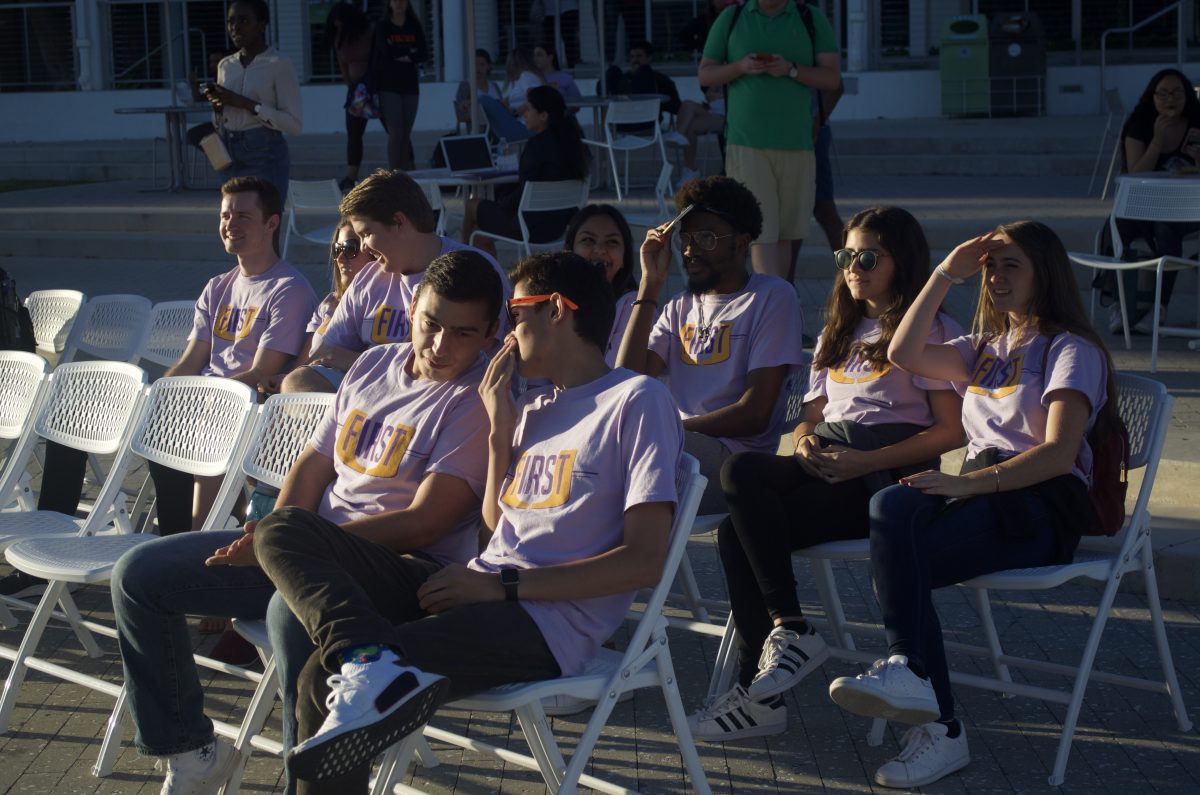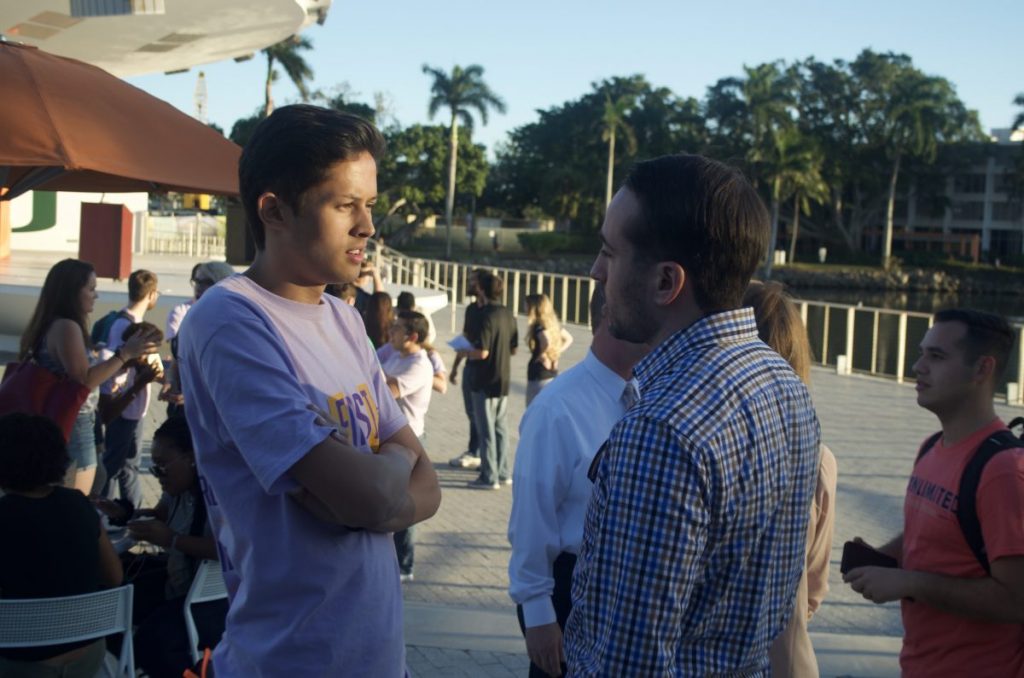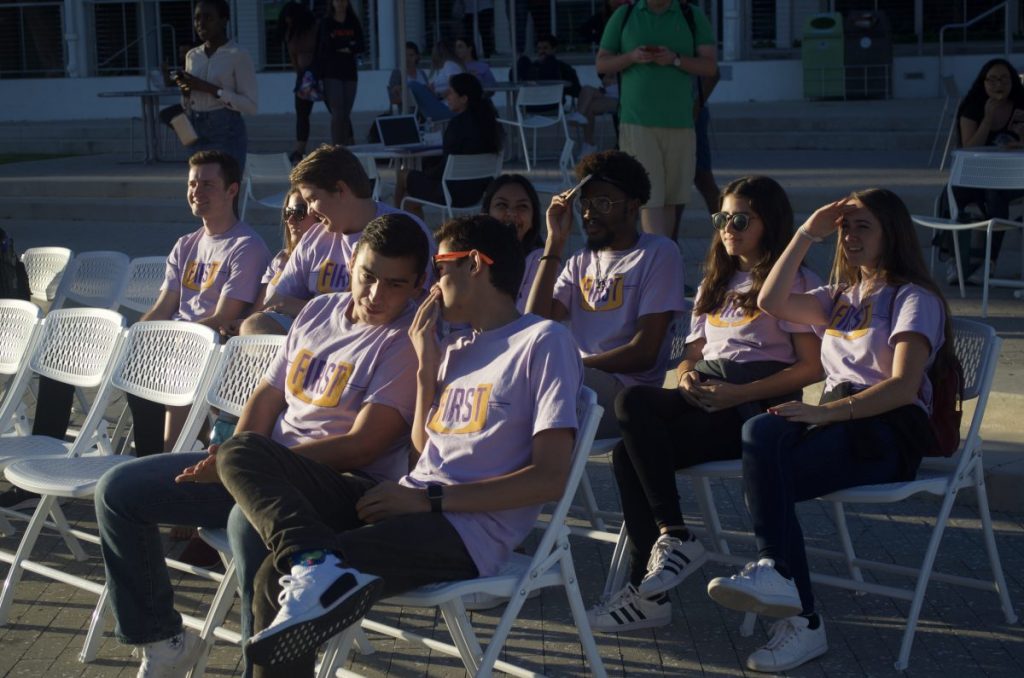

For the second year in a row, the winning candidates in the University of Miami’s Student Government elections enjoyed an uncontested victory as interest in the candidacy continues to decline.
Junior Catherine De Freitas, newly-elected SG vice president, said the answer to low registration turnouts for SG positions lies in its engagement with the university’s student body.
“Less people are running because there is a lack of awareness of Student Government and what we do in SG,” said De Freitas, a marketing major.
In 2015, True to U and One Team, One U ran against each other as full tickets. Each ticket was packed with three candidates vying for the positions of president, vice president and treasurer. A partial ticket, Empower U, also competed against the two trios with candidates running only for president and vice president. That election drew 1,877 voting for president, 1,874 voting for vice president and 1,863 voting for treasurer, higher than this year’s voting rate, but down from the school record set in 2014 at 2,934 votes.
Since then, executive tickets have won virtually uncontested.
In 2016, the Unlimited ticket won after its only opponent, independent candidate Aaron King, dropped out of the race. He said he had contracted pneumonia and could not finish the race.
This year, all candidates from the We Got You ticket refrained from attending campaign events, essentially ending the ticket’s candidacy despite a technicality that kept all the candidates’ names on the ballot.
However, even before then, Elections Commission officials were having a hard time reaching and gauging students interested in vying for positions.
De Freitas said she also hypothesizes that a busy schedule may pose a barrier to student involvement in SG.
“A lot of people do not diversify themselves on campus, so once they find that one organization they like, they do not make an effort to get involved in other places,” she said.

De Freitas said many juniors and seniors have approached her and said they want to get involved in SG but feel they may have missed their chance. She said these common sentiments suggest that accessibility to SG may be one of the many obstacles.
Freshman Lara Tomenchok said though she’s aware SG exists, it’s hard to know exactly how it works.
“I feel Student Government’s presence, but it’s hard to know where to go with my ideas,” said Tomenchok, an engineering major.
To bridge the gap, De Freitas plans to heavily promote SG to freshmen and sophomores, ensuring that everyone has the opportunity to get involved as soon as possible.
However, De Freitas also said she encourages everyone to participate in SG regardless of academic year. The vice president-elect hopes her ticket’s “approachable and transparent Student Government” model will inspire students to participate.
But the executive officers are not the only ones working hard to increase participation in SG.
Elections Commission Chairman Luis Goberna said the commission has worked hard during this year’s election season to expand voting and interest.
Goberna, a junior, said the commission revamped ad placements across various online platforms as well as locations throughout campus to remind students about the elections. Extended voting hours and a 24-hour online option have also made it easier than ever for students to make their voices heard.
However, these initiatives can’t combat the student body’s indifference on their own.
Goberna underscored the importance of a competitive executive election. He said on average, “voting tends to be linked to how many students are on the ballot.”
Nonetheless, Goberna said he remains hopeful for SG’s future. Sixteen people filed to run for senate in the spring compared to last year’s 11 students. Goberna said though the senate races also saw their share of plot twists, it was still a step in the right direction.
“The more students that know about Student Government and elections, the better,” Goberna said.
Correction, 1:32 p.m., Mar. 5, 2018: This article previously stated that the 2015 elections drew a record number of votes. It has been updated to reflect the fact that the school record of votes was cast in 2014 at 2,934 votes.





